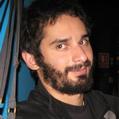Cited By
View all- Lewoniewski W(2024)The Most Cited Scientific Information Sources in Wikipedia Articles Across Various LanguagesBiblioteka10.14746/b.2023.27.12(269-294)Online publication date: 7-Mar-2024
- Yang PColavizza G(2024)Polarization and reliability of news sources in WikipediaOnline Information Review10.1108/OIR-02-2023-0084Online publication date: 18-Jan-2024
- Baigutanova ASaez-Trumper DRedi MCha MAragón PFrommholz IHopfgartner FLee MOakes MLalmas MZhang MSantos R(2023)A Comparative Study of Reference Reliability in Multiple Language Editions of WikipediaProceedings of the 32nd ACM International Conference on Information and Knowledge Management10.1145/3583780.3615254(3743-3747)Online publication date: 21-Oct-2023




